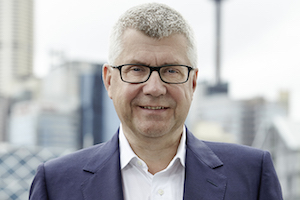SAP has announced the winners of the SAP HANA Innovation Award program for 2016 to recognise customers using the SAP HANA platform to transform their business in today’s digital economy.
The innovation winners are Lenovo in the Process Simplifier category, Mercy Health in the Analytics Wizard category, Vodafone in the Digital Trailblazer category and Stanford Medicine in the Next-Generation Apps category.
Lenovo contracted with SAP to help complete their acquisition of the x86 server business from IBM and to replace their aged legacy IBM supply chain networks. As part of the project, they enabled x86 manufacturing capability and built a new E2E supply chain IT platform from the ground up, based on SAP HANA. The new Vendor Managed Inventory (VMI) system supply chain process is three times faster than the previous system and the new CFE cost accounting system was accelerated from taking days to only 6~8 minutes.
“SAP HANA has proven instrumental in our effort to simplify core processes, increase operational speed and reduce costs,” said Qingtong Zhou, senior vice president and CIO, Lenovo.
Mercy Health worked to develop a data-driven approach to healthcare, simplifying processes and cutting costs without adversely impacting patient outcomes.
“With SAP HANA and SAP BusinessObjects business intelligence solutions, we were able to rapidly analyse vast amounts of data to save US$9 million in supply costs and improve operating room block utilisation by 12 per cent, while improving the outcome of procedures and patient experience,” said Curtis Dudley, Mercy’s vice president of performance solutions.
Vodafone leveraged SAP’s Margin Assurance solution with SAP HANA to obtain a granular view of customer profitability and subsequently identify tens of millions of previously unidentified revenue leakage points, delivering significant value to the business.
Stanford Medical School is combining clinical, wearable and genomics data to create the medical record of the future using SAP HANA. The innovation enables a greater understanding of the gene/variant connection to disease. It also uses clinical data from EMRs as a filter to prioritise genetic variants in the patient and makes it easy for clinicians to consume and navigate genomic data to provide decision support for diagnosis and treatment.
The winners were selected from more than 100 entries from 36 countries across the four categories. Two finalists were also selected for each category. Process Simplifier finalists were Zalando and Bundesdruckerei. Analytics Wizards finalists were China Customs and Reuters. Digital Trailblazers finalists were the City Intelligence Operation Centre in Nanjing China and Meteo Protect. Next-Gen Apps finalists were Aegro and Building Radar.




